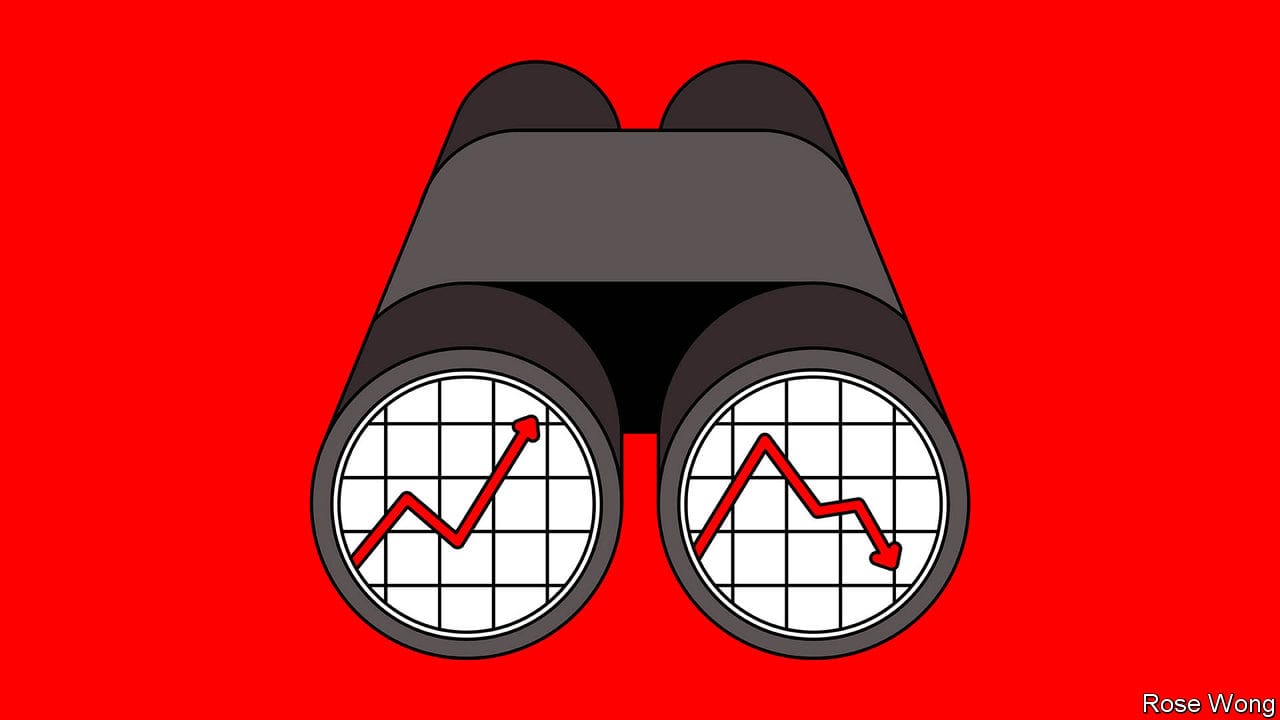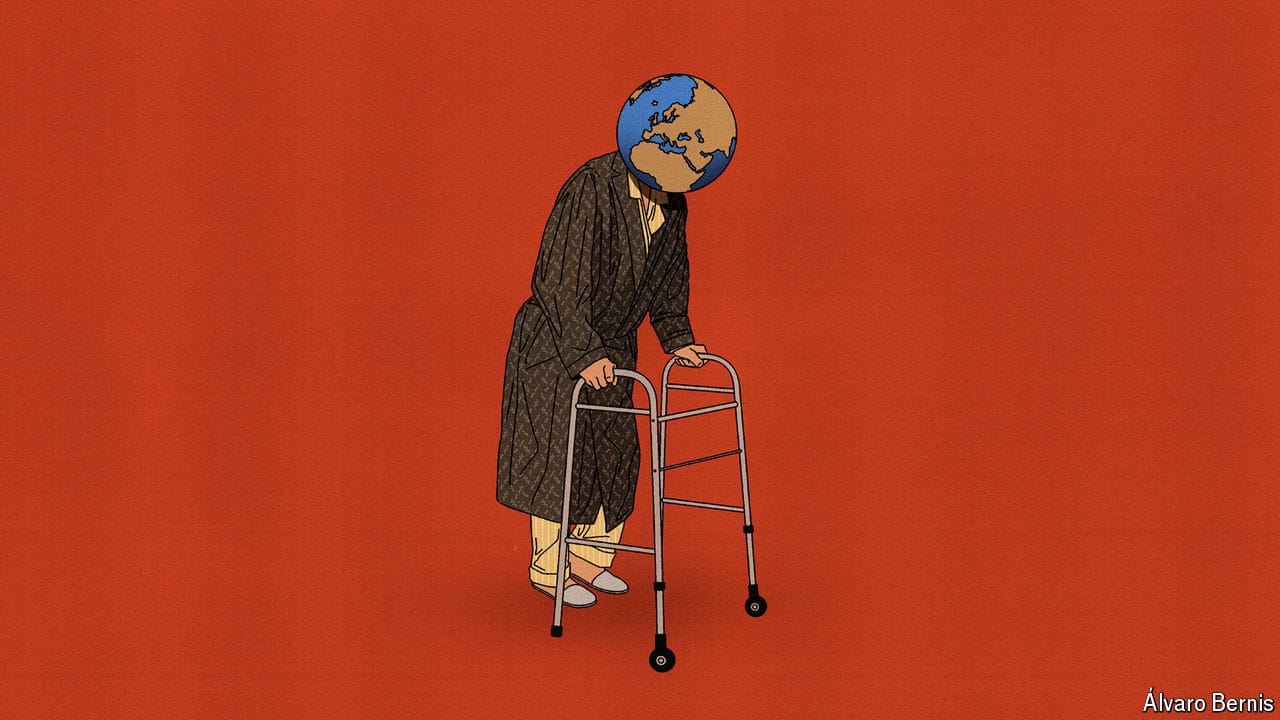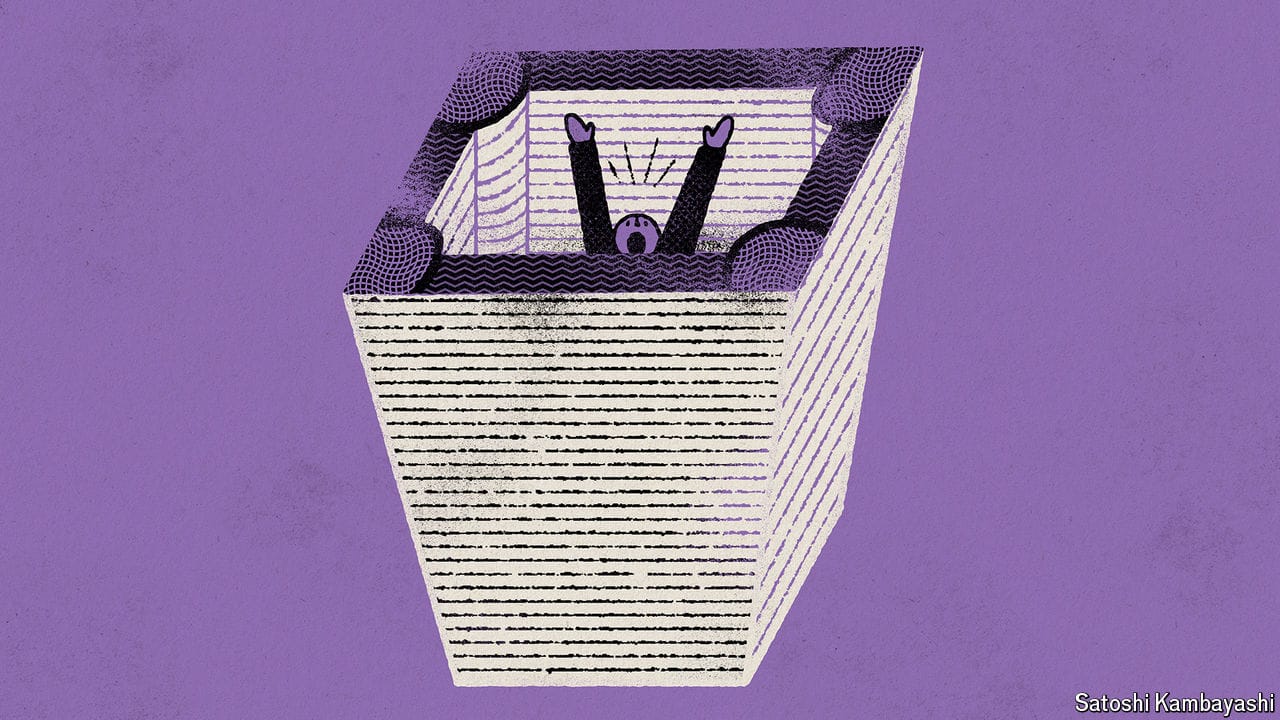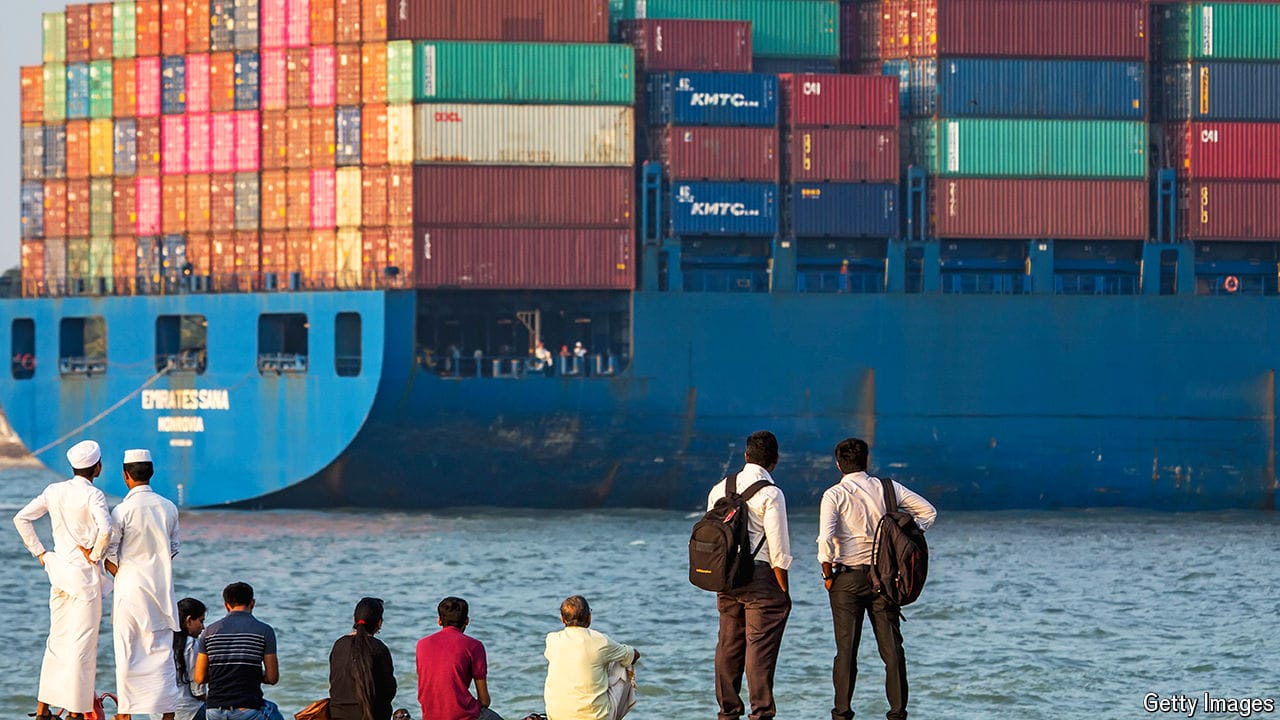Why it is too early to say the world economy is in recession
Growth in the rich world is slowing, but has not crashed to a halt

Everyone is a pessimist these days. On July 14th Steven Blitz of ts Lombard, an investment-research firm, said that he was now expecting a recession this year in the world’s largest economy, a day after Bank of America made the same call. Goldman Sachs, another bank, expects gdp in the euro zone to fall in both the third and fourth quarters of the year. Americans’ Google searches for “recession” have never been so high. Traders are selling copper (a proxy for industrial health), buying the dollar (a sign that they are nervous) and pricing in interest-rate cuts in 2023.
A number of factors have combined to create a toxic mixture. In response to the covid-19 pandemic America overstimulated its economy, provoking inflation not just within its borders but beyond them, as consumers’ voracious demand for goods bunged up the world’s supply chains. China’s attempts to stamp out covid compounded these problems. Then Russia’s invasion of Ukraine caused commodity prices to soar. In response to the ensuing inflation, roughly four-fifths of central banks worldwide have raised interest rates, by an average of 1.5 percentage points. After a meeting that ended on July 27th, the Federal Reserve raised rates for the fourth time this cycle, by three-quarters of a point.
This article appeared in the Finance & economics section of the print edition under the headline “Coming in to land”
More from Finance & economics

Shrinking populations mean a poorer, more fractious world
Politicians must act now to avert the worst

Boaz v BlackRock: Whoever wins, closed-end funds lose
Farewell to a financial mystery

Brazil, India and Mexico are taking on China’s exports
To avoid an economic shock, they are pursuing a strange mix of free trade and protectionism

